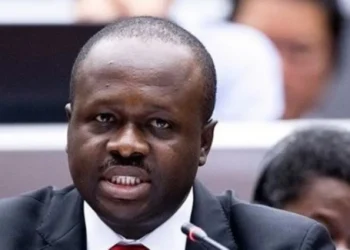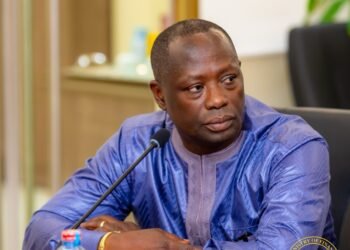The Rotational Nurses and Midwives Association (RNMA) has stated that if by Friday, November 20, the allowances of its members which have been held up for eight months now are not paid by government, the association will take undertake their next course of action.
The association cited the case of its members who served as interns in October last year and still have not received their allowance while its members who started it service in April this year has also not been paid.
The National President of the association, Mr. Jerry Mertins Aziamadia, made public the association’s intention to embark on a strike if their demands are not met by government by the stipulated time. He said this at the association’s official launch at the Eastern Regional capital, Koforidua.
Speaking on the theme: “The Impact of COVID-19 on Universal Health Coverage: The Role of the Nurse, Midwife, Major Stakeholders and Government”, Mr. Aziamadia mentioned that, newly graduated nurses who are degree and diploma holders have still not been paid their salaries and allowances even after months of graduating.

He further said, embarking on strikes and picketing is not new to them as they have been made to see it as the only way to make government hear and work on their demands.
As stated by him, during those periods, new nurses had to work on empty stomach as well as had to endure other hardship like cost of transportation, paying their rents and other utilities. He said some had families to feed and the situation made it very difficult, if not impossible, for these newly trained nurses to do so.
He therefore demanded that the government pay the monies owed these nurses immediately.
The association’s President called on government to be swift with the posting of the newly trained nurses to avoid them being unemployed.
The National President of the Ghana Registered Nurses and Midwives Association (GRNMA), Mrs. Perpetual Ofori Ampofo also called on government to increase the budgetary allocation to the health sector. Mrs. Perpetual said, the budgetary allocation which currently stands at 10.5 percent is not enough to cater for the undertakings of the sector and cited that global allocation stands at 15 percent.

“If Ghana can attain universal health coverage by the year 2030, then we need to take a critical look at the training and quality of the health workforce, especially nurses and midwives, as well as the health infrastructure and equipment needed for service delivery. Also, the National Health Insurance Scheme (NHIS) and private insurance schemes and the governance systems at all levels,” Mrs Ampofo stated.
“We are all called upon to act. Policy makers must understand that UHC is a political choice, we must shine for equity and justice in health, which requires careful policy dialogue tailored to Ghana’s needs and capacity,” she added.



















